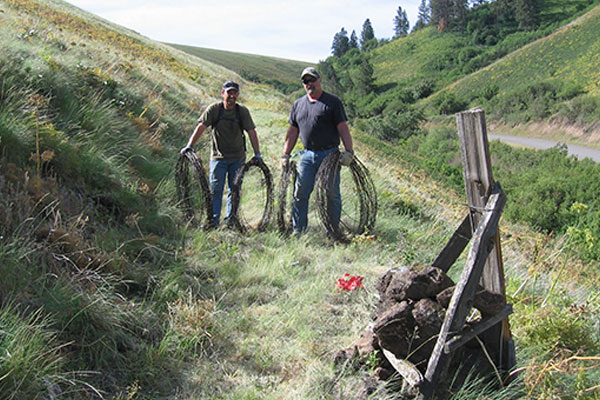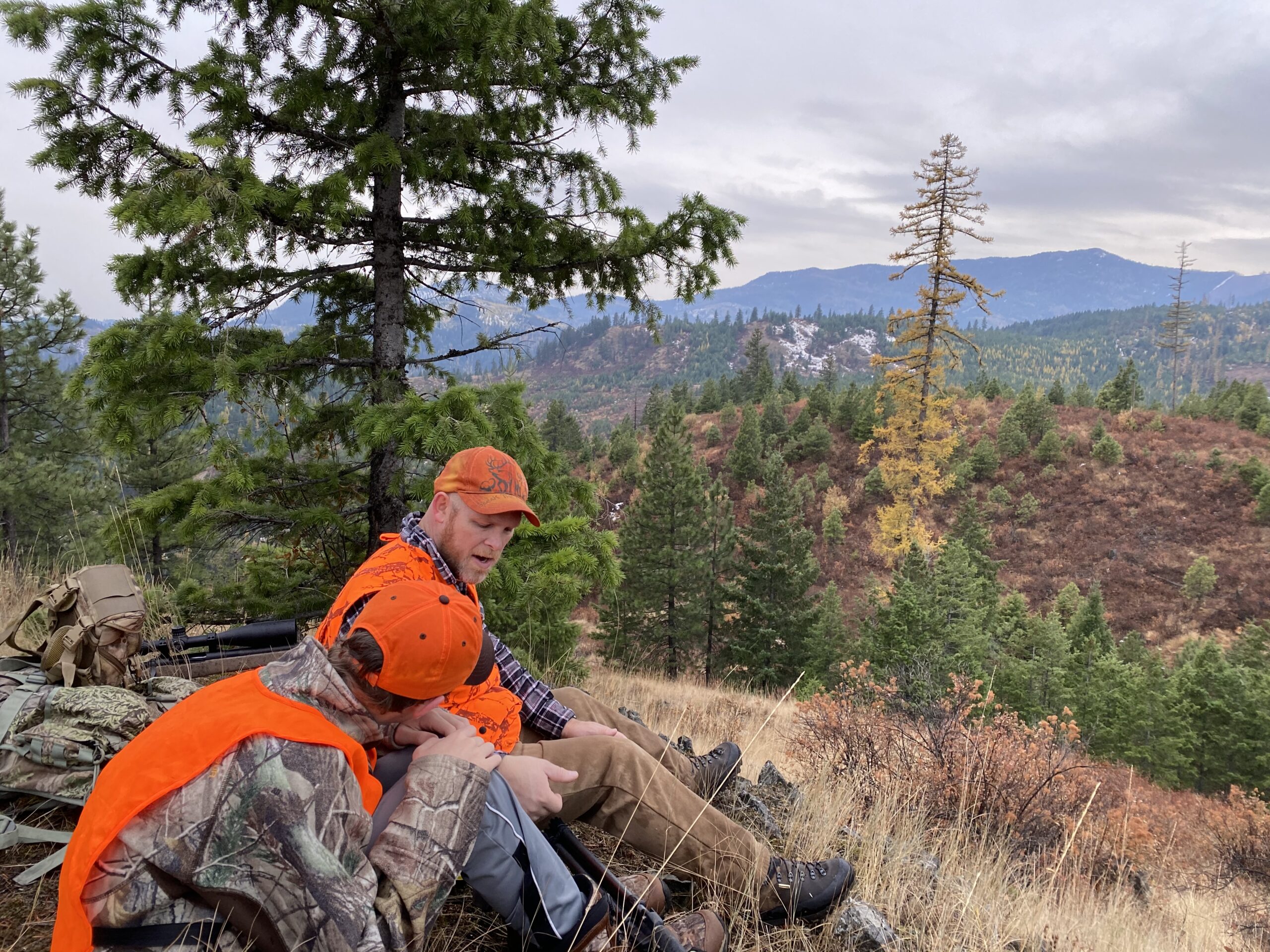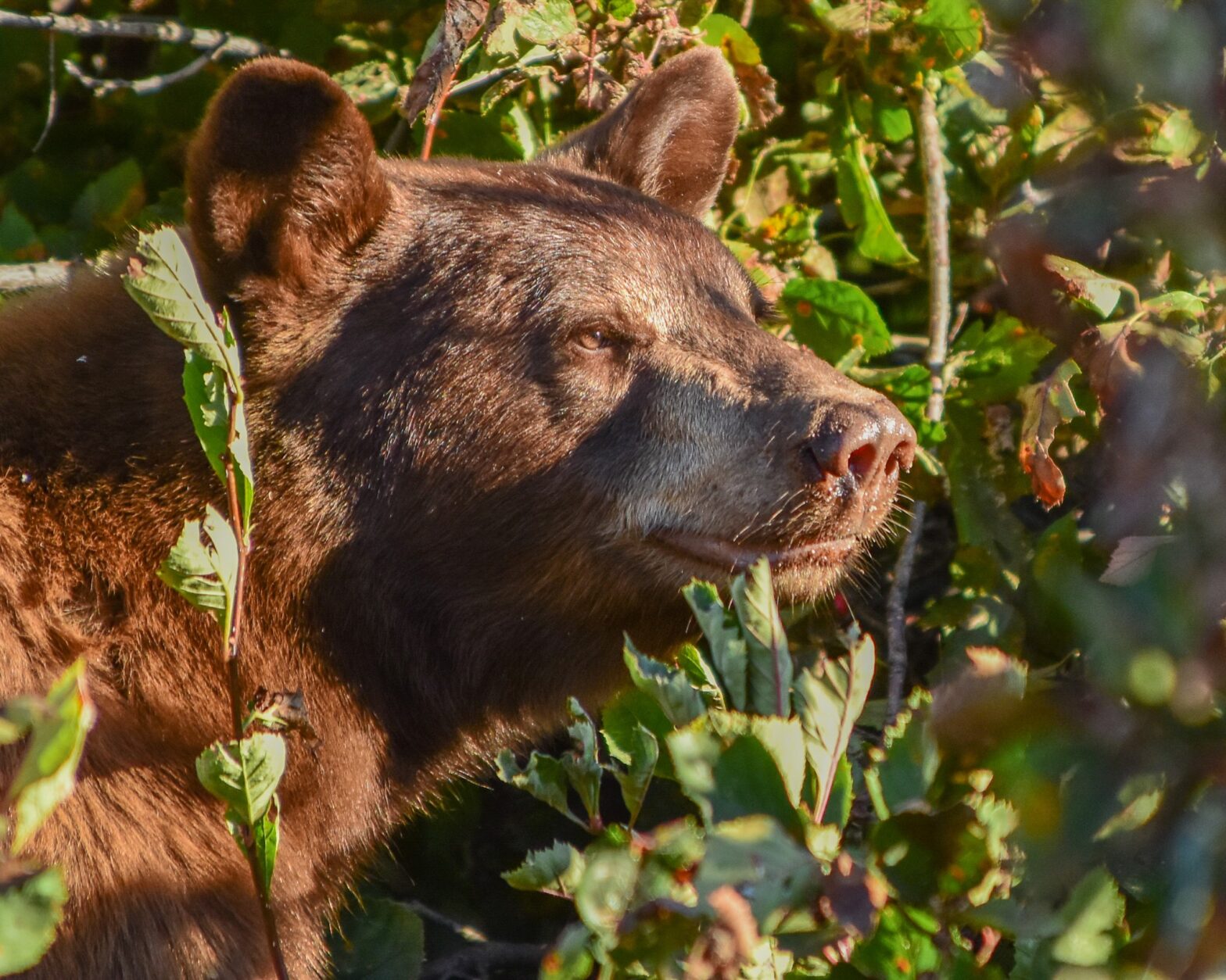By Marie Neumiller Each month I have the opportunity to attend WDFW commission meetings and speak on behalf of the members of the Inland Northwest Wildlife Council as a part of our ongoing education and outreach efforts. There has been a growing trend at these meetings with several commissioners noting the hunting population percentage and how it relates to the overall population of the state. For example, it was mentioned over and over that only 5% of Washingtonians hunt, so therefore, it must be true that 95% of the state opposes spring bear permit seasons, which in turn made canceling the season acceptable. In a recent conversation with WWC/HHC president Mark Pidgeon, on this topic, he pointed out that this argument is secundum quid and does not match the actual attitudes towards hunting. Mr. Pidgeon went a step further, and shared an interesting study with me that directly backed up his statement. This intensive study was conducted by the National Shooting Sports Foundation (NSSF) and Responsive Management. Together, these two organizations have been tracking American’s opinions on hunting, fishing, sport shooting, and trapping since 1995 through phone surveys. The full survey results can be found HERE, the study link is also posted at the bottom of this article [1]. Their findings paint an interesting picture of the overall approval of hunting, and if we look carefully at the results, we can see areas where we as hunters can improve our messaging and outreach efforts. Is hunting a dying sport? Some commenters at WDFW commission meetings attempt to paint hunting as an outdated way of life and give the impression that modern humans are above such primitive, cruel actions. They try to make it appear that WDFW is caving to a small minority opinion (pro-hunting) while ignoring the majority (anti-hunting). However, the NSSF study directly refutes that argument. When asked about legal hunting, 80% of Americans approve, even if they do not participate in the sport themselves. The study specifically used language emphasizing legal activities so that, “poaching or other illegal activities would not be considered in the responses.” (pg 7). This is an important distinction to make in a survey of this nature, hunters and non-hunters alike will agree that poaching is reprehensible and has no place in the North American Model of Wildlife Conservation. While hunting received an overall all approval rating of 80%, tolerance varied in several ways depending on the motivation, species taken, and methods used. Motivation for hunting There is a strong fluctuation in the approval for hunting when taking the individual hunter’s motivation into consideration. Hunting for what are considered to be more traditional or subsistence purposes saw widespread approval (see study page 12); protection of humans 85%, for the meat 84%, locally sourced food 83%, and wildlife management 82%. When hunting is done for what is perceived as more “selfish” reasons then the approval ratings absolutely tanked; sport hunting 50%, personal challenge 41%, trophy 29%. What can we learn from these numbers? Well, the results of this study answer my personal curiosities as to why anti-hunting groups work so hard to paint hunters as “blood thirsty, egotistical, trophy hunters.” The general public actually approves of hunting for the reasons that most hunters currently participate in the sport. So by changing the underlining image of hunters these opposition groups can potentially change the public perception of the activity as a whole. Most of us who hunt are in it for a variety of reasons – quality meat for our families, making memories with loved ones, reconnecting with nature and our roots, the experience, sustainable meat, and so much more. Our adventures outdoors lead us to want to protect wildlife and their habitats in accordance with the North American Model of Wildlife Conservation. It’s almost impossible to participate in this sport and not gain a love for wildlife and wild spaces. On their Facebook page Blood Origins [2] recently shared a quote from Karen Seginak that perfectly sums up a hunter’s desire to protect nature, “I didn’t become a hunter because I was a conservationist, I became a conservationist because I became a hunter.” What a perfect way to sum up the hunter/conservationist. We should each strive to do better with the messaging surrounding hunting. If all that we share publicly are the grip and grin trophy photos at the end of the hunt, then it will be easy for anti-hunting groups to erode our image and turn an 80% approval rating into a net negative. So what can you do? Share photos and stories from the entire hunting experience. Scouting, hiking, camping, shed hunting, field notes, family stories, successes, failures, sunsets, meals made from your harvests…EVERYTHING! Methods and Species Hunted Here again the approval ratings had a wild swing depending on the perceptions surrounding the species pursued and hunting methods used in that effort. Below are a few of the highlights from study pages 23 and 34 respectively. Species hunted approval ratings Deer 78% Turkey 78% Duck 74% Black bear 44% Grizzly bear 40% Wolf 39% African Lion 14% Elephant 7% Hunting method approval rating Archery 80% Hound Dogs 55% Scent attractants 43% Bait 32% High tech equipment 26% High fence 21% Spring bear 20% As hunters, we can argue all day about which pursuit methods and which animals are more ethical, but doing so only helps anti-hunting efforts. So long as the hunting is being conducted in accordance with the local laws and follows scientific models (that ensure the population improvements or sustainability) then why denigrate each other and add to any negative perceptions? We are each on a unique journey, let’s celebrate the paths that we take instead of declaring our personal methods to be best thus naming ourselves the arbiters of ethics. Just because I archery hunt for deer to make it more challenging, does not make a rifle hunter unethical or less fair chase. Conversely, just because a rifle hunter encroaches less on an animal’s personal space does not make …
Continue reading “American’s Attitudes Toward Hunting”





